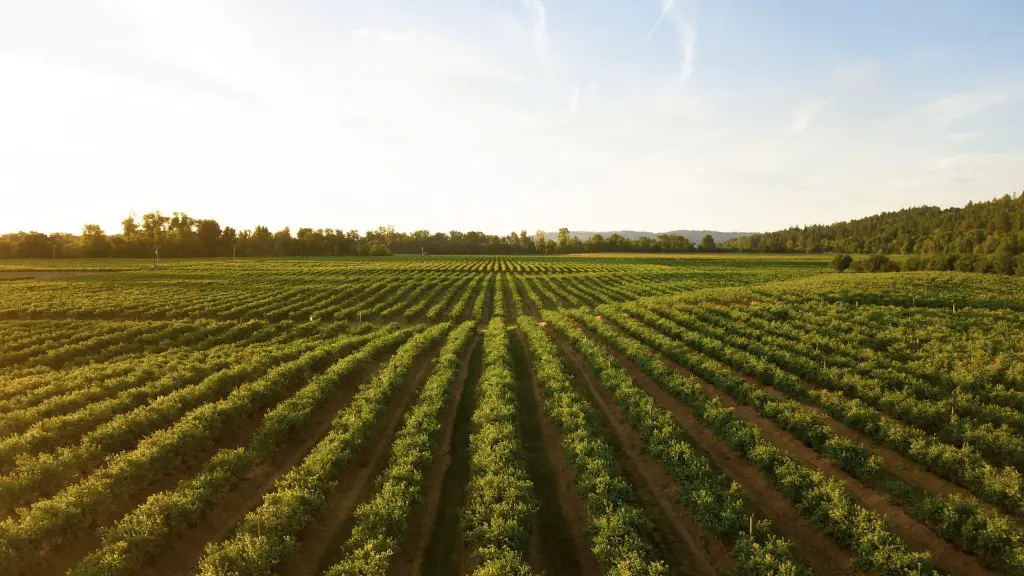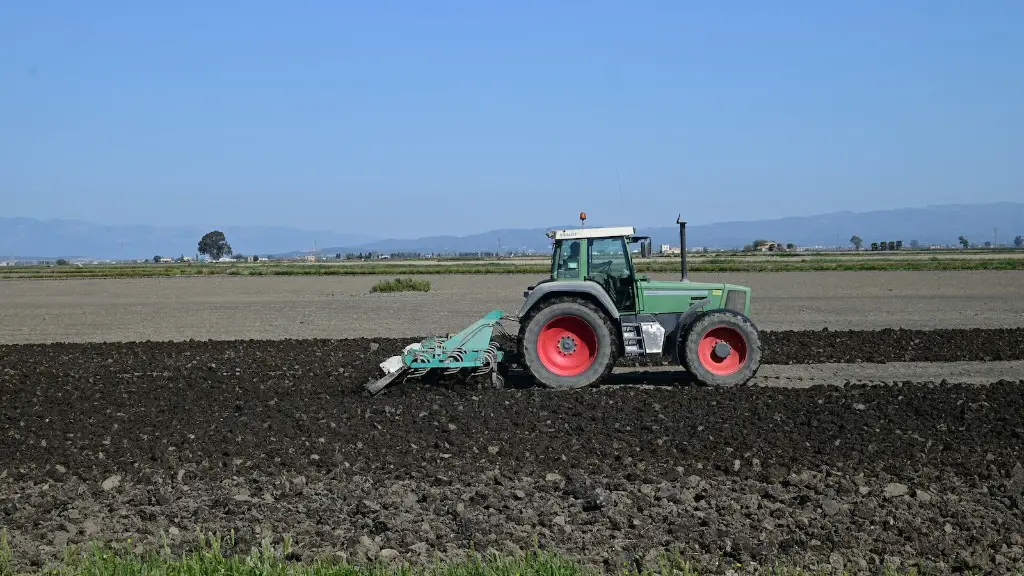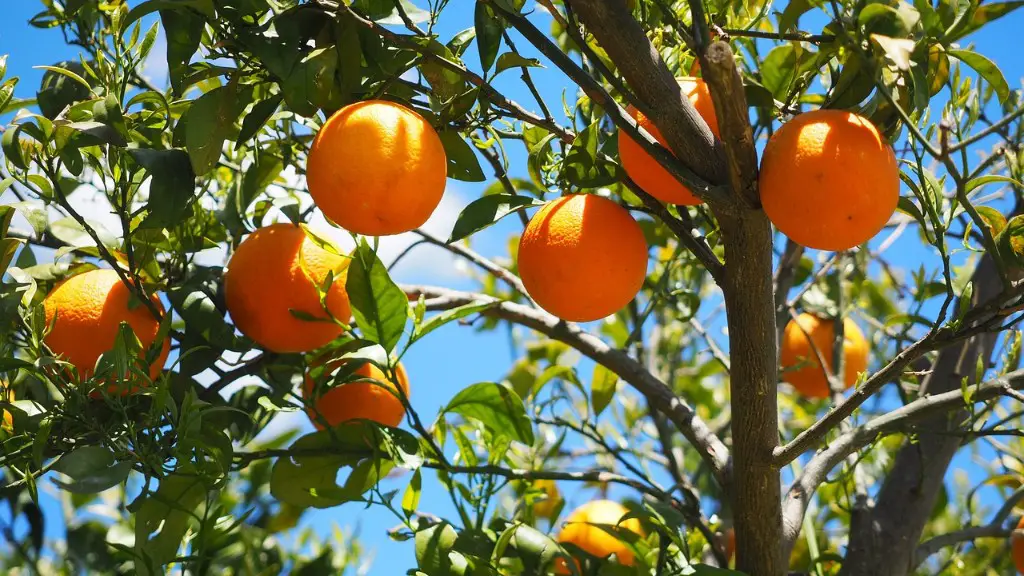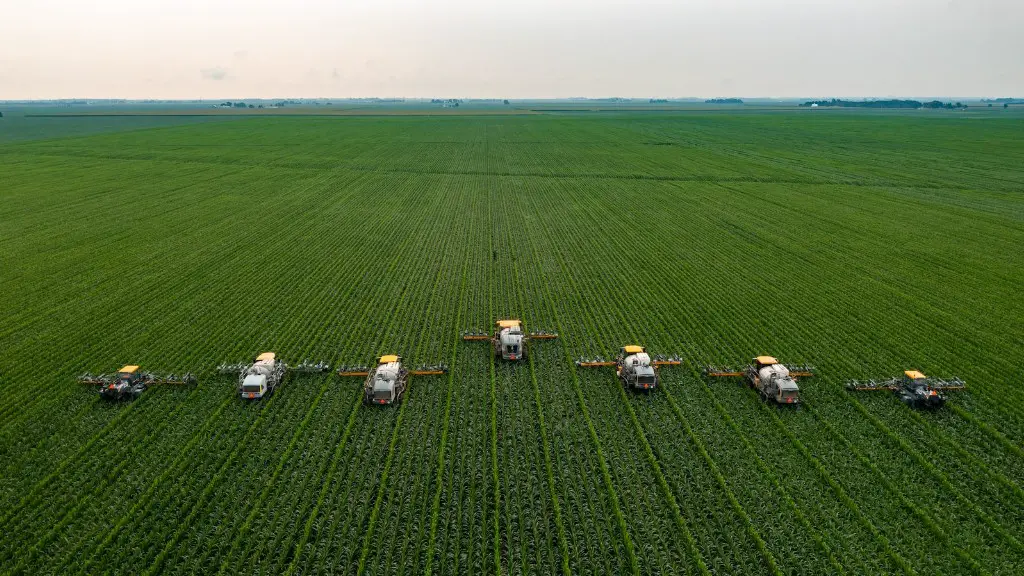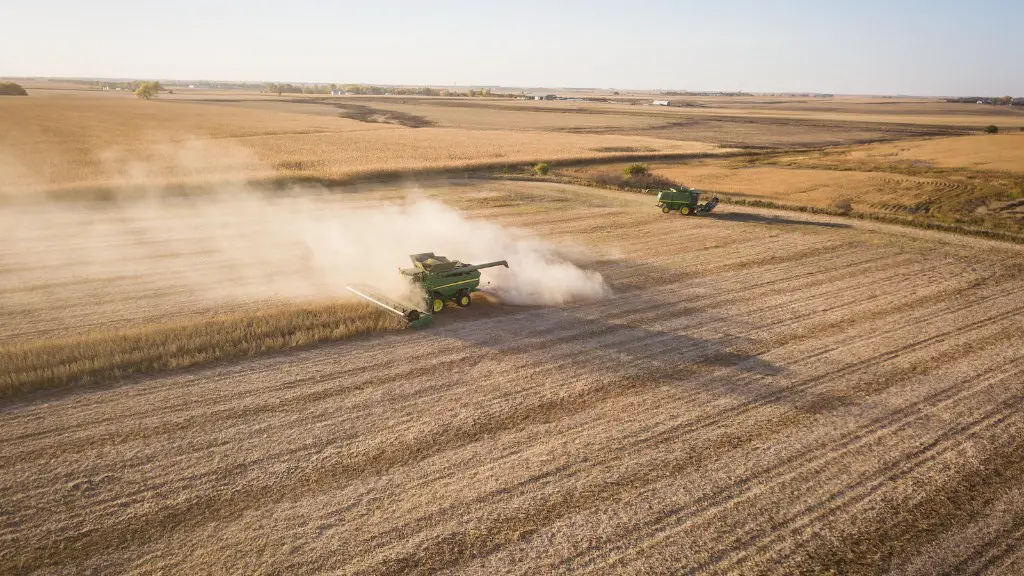Climate change affects many aspects of our lives, but particularly agriculture. Around the world, farmers, ranchers, and agricultural workers are seeing their livelihoods threatened by global warming. Scientists agree that air temperatures, changes in rainfall patterns, and other climate variability, can cause significant impacts to agriculture and cripple the food supply for millions of people. As temperatures rise, areas that were once inhabitable for agriculture are no longer suitable, forcing people out of their work and into new regions, oftentimes without understanding the new climate or new cultural expectations.
Here we can look at the impact that climate change can have on agricultural productivity, the practices, and policies that can help combat and reverse these effects, and the role of government in addressing climate change and its wide-reaching effects. The following four sections cover these three aspects of how climate change and agriculture are linked.
Impacts of climate change on output and productivity
Agriculture is already profoundly affected by climate change; some areas with lower precipitation become unsuitable for certain crops, while more extreme temperature fluctuations lead to decreased crop yields. This decrease in yields, often the result of water stress and heat shock due to extreme weather such as droughts and floods, affects profitability and food security. Long periods of abnormally high temperatures can dry out the soil making it difficult for crops to grow, and if temperatures are higher than a certain point for long enough, it can kill crops outright.
In addition, climate change can disrupt the delicate balance between pests and beneficial insects, disease and disease-causing agents, and weeds and valuable vegetation. Pests, weeds, and diseases are becoming more aggressive, and are increasingly difficult to manage. These changes can not only limit crop production, but also create a wide variety of associated costs including higher chemical inputs and labor costs.
Climate change can also have an effect on water availability; it has been observed that the availability of water has decreased in some regions. This will heighten the already precarious balance between water supply and demand, since agriculture is one of the most water-intensive human activities. Reducing rainfed agriculture will be one of the main ways climate change will alter agriculture.
Finally, due to rising temperatures, extreme weather, soil erosion, and increasingly reduced water availability, some areas may be less suitable for agricultural production. This will force farmers and agricultural workers to migrate, often in search of new climates with more suitable conditions, or risk a complete collapse of their livelihood.
Mitigation practices and policies to reduce climate change impacts on agriculture
Agriculture is one of the largest contributors to greenhouse gas emissions, yet it’s also highly vulnerable to the very same climate change. Therefore, there needs to be a balance that ensures the maximization of crop yields while simultaneously reducing the carbon footprint of agricultural activities. There are several techniques and strategies available for farmers to reduce their own emissions, as well as managing the vulnerability of their crops and livestock against the effects of climate change.
Techniques such as tillage management, which limits disturbance of the soil by farmers and agricultural machinery, can reduce emissions of CO2 and methane. Conservation agriculture, a method of increased soil fertility combined with reduced tillage, is an example of this. Other methods include crop and grazing rotation, no-till farming, and using agricultural waste products like manure and crop residues for fertilizers.
Climate-smart agriculture, which is a combination of practices and technologies used to increase production and profitability of agricultural resources while at the same time reducing greenhouse gas emissions and increasing the resilience of farms to climate change and food insecurity, is becoming increasingly popular. This includes practices such as agroforestry, perennial crop production, sustainable aquaculture, and integrated water management.
Agricultural policies should also be improved and enforced to reduce the effects of climate change. Agricultural policies can be an effective way to manage climate change in agriculture. Policies such as the taxation of inputs, subsidies and incentives for resource conservation, and soil and water management, can go a long way in decreasing emissions and increasing agricultural production.
Finally, changing people’s diets and creating incentives for producers to adopt more sustainable agricultural practices can reduce climate change impacts. Eating diets low in red meat and dairy, for example, can reduce emissions of methane, and governments can provide incentives for producers to reduce emissions. Governments can also develop policy incentives for sustainable agricultural practices such as agroforestry, carbon sequestration, and integrated pest management.
Role of government in addressing climate change
Governments have a key role to play in addressing climate change, and they need to develop policies and regulations that are tailored to the specific agricultural needs of their regions. Governments must support the implementation and enforcement of sustainable agricultural practices, and provide incentives and subsidies to farmers that are adopting these measures. This can include providing farmers with access to information and resources to help them transition their farms and operations to more sustainable practices.
Governments also need to promote climate-smart agriculture. This can include providing farmers with access to financing, building capacity of farmers and agri-businesses, promoting climate-friendly technologies such as solar-powered irrigation, and improving access to energy sources for mechanized activities. Governments must also take a lead role in reducing emissions and increasing the resilience of agricultural systems to climate change.
In addition, governments must provide legal protection and rights to vulnerable people and communities that are affected by climate change. This includes implementing policies and laws that protect the rights of small-scale farmers, indigenous and tribal communities, and land rights activists. Governments must also develop strategies and frameworks that are tailored to the needs of each region, such as creating agricultural zones for those affected by climate change, and relocating those who are unable to sustain agricultural production due to weather extremes.
Effects of climate change on crop diversity
Climate change can also have an effect on crop diversity. As temperatures rise, crops that were once used to sustain food production might no longer be suitable in a particular region, forcing farmers to shift to wholly new types of crops and animals. This can lead to the loss of an important food source, and can reduce genetic diversity and crop resilience to extremes in temperature and precipitation, making it more difficult to adapt to the changing climate.
Adapting to the changing climate means diversifying what is planted and where it is planted. For example, diversifying crops and adapting them to the new climate can help to combat food insecurity as well as allowing for more sustainable land and resource management. This can include shifting to more drought or heat tolerant crops, using local crop breeds, and focusing on intercropping and soil conservation techniques. It also involves creating resilient networks of farmers and communities, and building the capacity of national and local agricultural institutions.
In addition, governments must provide support to farmers who are losing their livelihoods due to climate change. This includes providing access to market opportunities, as well as resources and information, as they transition away from their traditional crops and activities. This type of support can be particularly valuable to small-scale farmers and land rights activists, as they struggle to adapt to the impacts of climate change.
Climate change and aquaculture
Climate change is also having an effect on aquaculture, which is the farming of aquatic organisms, mainly by humans. Aquaculture has long been an important source of nutrition and livelihoods for communities, and climate change could have a lasting impact on the sector. Changes in water temperature and salinity, increased levels of carbon dioxide in the atmosphere, ocean acidification, changes in ocean circulation, and increased storms can all have a negative effect on aquaculture, leading to decreased production and higher costs of inputs.
Adapting to the changing climate is possible, however. Aquaculture can take several steps to combat climate change, such as introducing new breeds, rearing more tolerant species, developing closed-system production systems, and monitoring water quality. In addition, governments and communities should work together to raise awareness, provide training and resources, and ensure food security and safety.
As of now, aquaculture remains largely unregulated, and subject to many natural disasters. This has made it difficult for communities that rely on this type of farming to adapt to the changing climate. In order for aquaculture to be sustainable in the long-term, governments, NGO’s, and the private sector must come together to form a strategy to reduce emissions, increase productivity, and increase the resilience of aquaculture systems.
Conclusion
In conclusion, it is clear that climate change can have a significant impact on agriculture, from decreased yields and decreased crop diversity to increased vulnerabilities to extreme weather and climate variability. Mitigation strategies and agricultural policies can help to reduce the effects of climate change on agriculture, while the role of the government in addressing climate change is vital. Government policies and regulations that are tailored to the specific needs of each region can ensure the longevity of successful agricultural practices and provide support to those affected by climate change.

